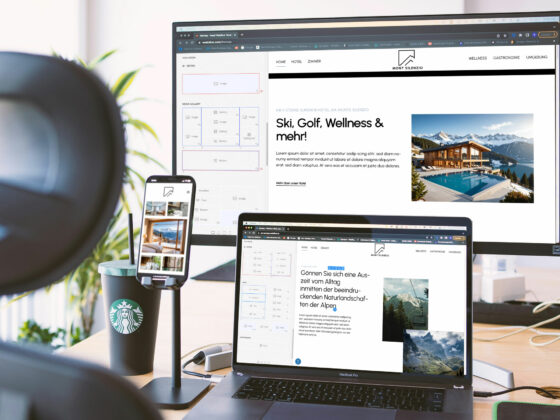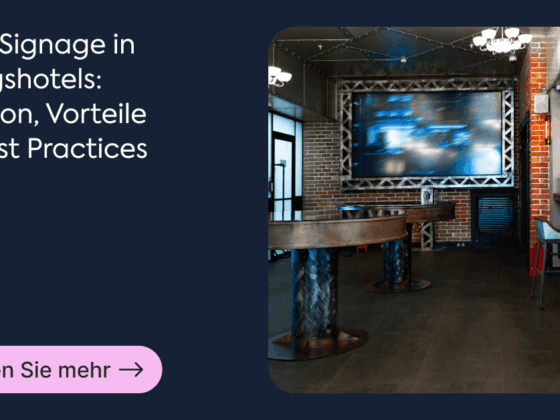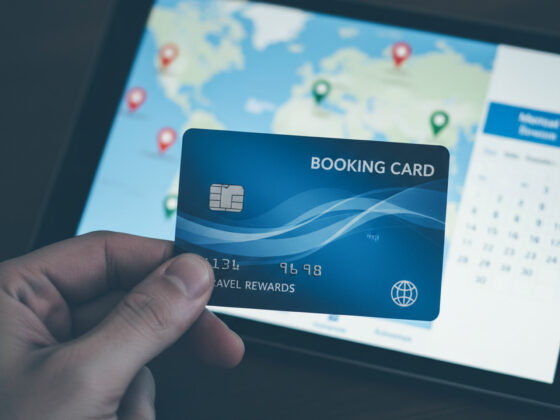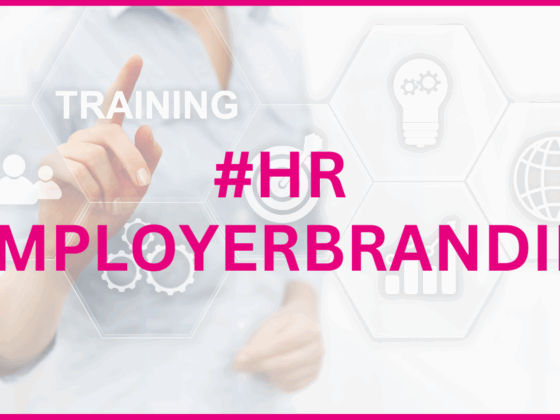Jason’s journey to F&B leadership in hospitality
Jason’s career in hospitality began when he was 16. To earn his own spending money, he started as a cook at Sonic – a fast food restaurant – earning minimum wage.
“It was a humble beginning, but I fell in love with food and beverage. There’s something satisfying about being able to prepare food for others.” After this, he worked as an off-site caterer doing events before working at a restaurant as a server.
“When you’re passionate about good food, one of the best ways to express that passion is by providing people with a good meal. I saw this in a lot of different situations and found it especially satisfying for bigger groups. Being able to enable people to celebrate a wedding or other events without a hitch was satisfying to me.”
During his senior year of high school, he decided he wanted to pursue a career in hospitality so applied to the Conrad Hilton College of Global Hospitality Leadership at the University of Houston. One of the biggest things he heard from professors was the need to diversify experience, so Jason decided to get a job at the front desk of a hotel.
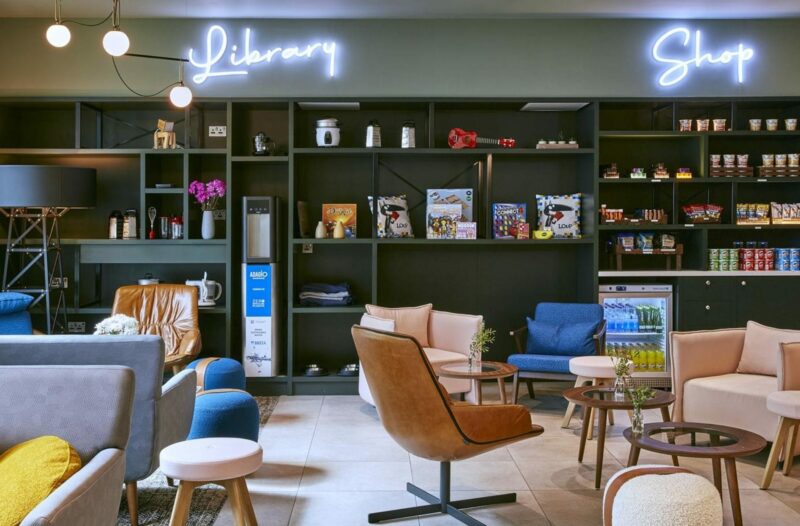
While the experience was okay, it didn’t provide him with the same feeling as did working in food and beverage. “For me, the front desk just felt like a job.” However, he was able to build good relationships through the process. Later, the general manager he was working for sought him out when their company was looking for food and beverage leadership, and Jason started as a supervisor in 2012 before working his way up to his current role as Regional Director of Food & Beverage.
“I’ve stuck around with American Liberty Hospitality for more reasons than one, but the most important is the values they live out. To me, it doesn’t feel like another corporation. Even with 500+ F&B associates throughout the entire portfolio, leadership still gets to know us on a personal level and knows our names.”
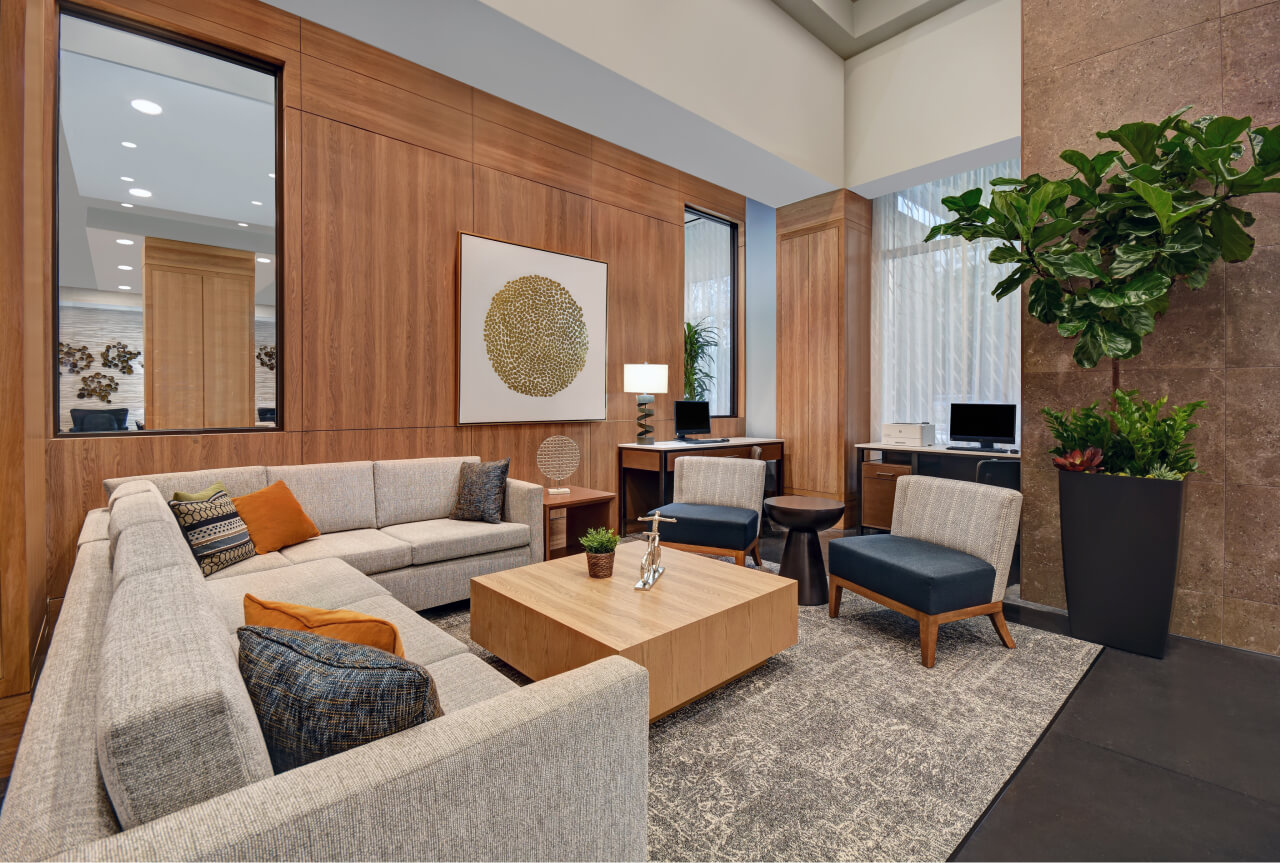
Guiding principles for innovation
Two additional cultural values serve as guides for Jason in his mandate to drive incremental food and beverage revenue through innovation.
The first is a focus on over-delivering on expectations. “At American Liberty, we’ll take a product and really amp up the experience to surprise and delight our guests. All of our projects that we’ve done have been unique in that aspect, where we go above and beyond what a brand would typically require of us.”
The second is making sure that he doesn’t have to tell guests no. “We are very focused on being easy to do business with from a sales perspective, and that’s where the opportunity for Innovation lies.”
Going above and beyond to delight guests
Jason shared an example of serving a recent guest that illustrates these values.
“We had a couple walk in off of our street and wanted to do a birthday party at our Galleria property. They were in love with the design of the hotel because it’s very chic. The only problem is they wanted Nigerian food at their party. Because we’re in the city of Houston, everything needs to be catered by the hotel – we couldn’t have an outside caterer come in and provide food for the party. Our food service manager is responsible for everything that is served on the premises. So our general manager called me and asked what I know about Nigerian food. ‘Nothing,’ I said. So we had them send over a menu of what they wanted and got to work seeing what we can figure out.”
After some research, Jason found some local African food stores that sold the spices and ingredients they needed. They ended up doing a tasting menu for the guests before they booked the reservation to make sure they could pull it off. “They were blown away, and their party ended up being a big success, which gave us confidence that we can meet the needs of our clients – whatever they wanted.”
This story is an example of not only providing great service but being smart about capturing all of the available revenue. Jason said this has been a big shift of perspective for the company coming through COVID.
“Pre-COVID, maybe we were a little spoiled where we could pick and choose what we take. And so post-COVID our mentality has been we want to take every piece of business that makes sense for the company.”
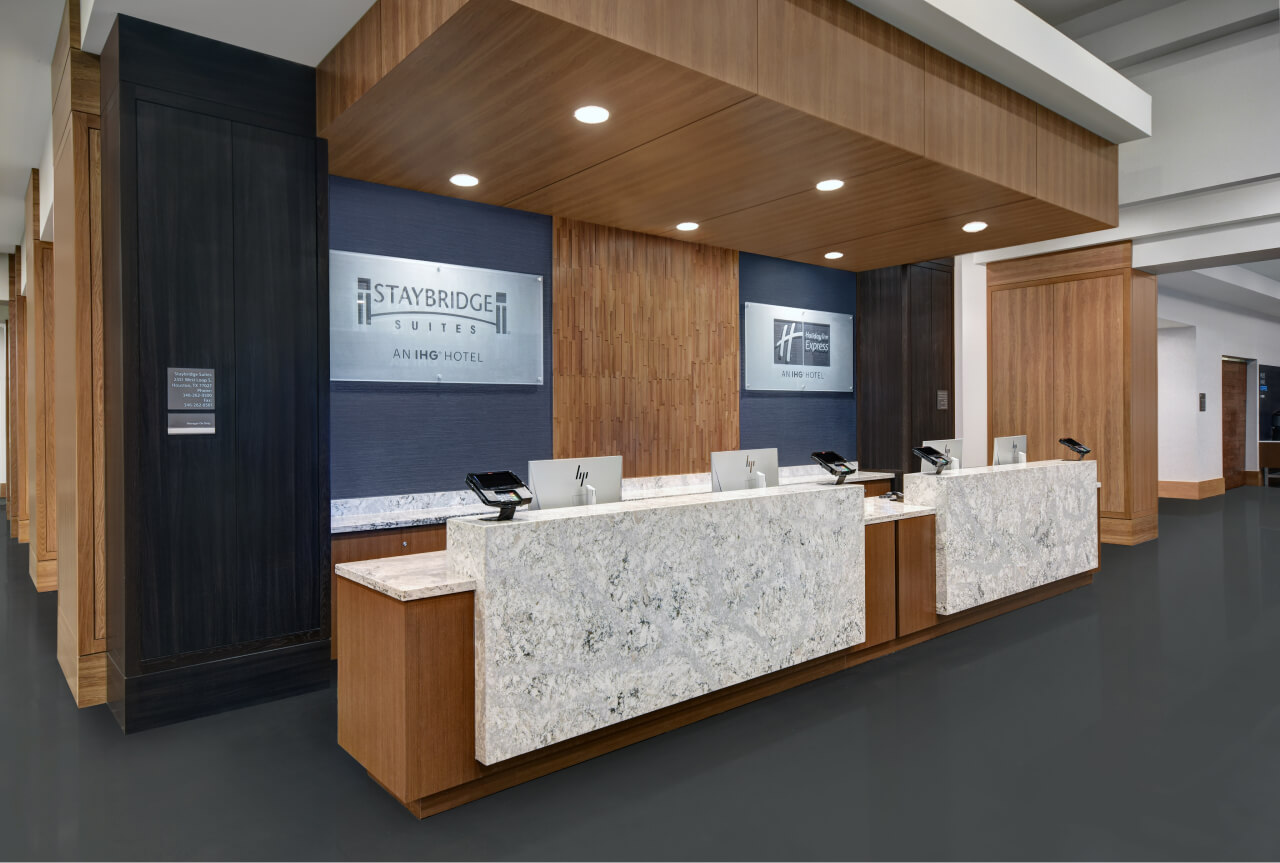
Empowered to launch their own in-house brand
One of the things that Jason is excited about is launching their own brand from their hotel that is independent from the hotel kitchen. “Food and beverage at hotels is often known as mediocre and overpriced. We want to change that.”
To do this, they are launching a brand that will have its own identity and will be sold through technology without having to involve hotel associates. “We want to be able to allow guests to scan a QR code in their room or lobby or wherever and pull up a menu, place an order and pay for that order very quickly. The order will go straight to the kitchen. The cool thing is it’s like hybrid room service in that we don’t need a person answering the phone and it takes the friction out of the experience for the guests. They can order from their phone and the food shows up at their door in 30 minutes.”
The idea was sparked from seeing so many hotel guests use apps such as Uber Eats to order pizza delivery from big national chains such as Papa John’s and Domino’s.
“We want to take a slice of that pie, so to speak. When guests understand they can have a fresh pizza at their door in 20 minutes instead of having to wait 40-45 minutes that the other brands will take, it’s not only going to drive value for the guests but incremental revenue for us.”
The quick and easy ordering process, combined with the quality they can ensure by preparing it with existing labor and kitchen space, should increase guest satisfaction as well.
“I feel it’s an innovation that I haven’t seen hotels utilize before, and we’re going to be at the forefront of what could be really big.”
After piloting this brand and concept at their Galleria property, the company plans to expand to other hotels in the area and potentially scale from there.
Technology that doesn’t involve staff
Part of launching this new brand is requiring less involvement from staff, which drives efficiency as they grow revenue.
“Guests can become the order-taker and we don’t need a third party involved. With staffing being a challenge across the industry, it doesn’t make sense for them to just answer the phone.”
“One thing that would always drive me nuts at other hotels is if the phone didn’t get picked up. The person may be busy or running an order to the room or maybe didn’t hear the phone ring. But if that happens, guests get mad and it’s not a good experience for anyone. If that were me, I would just pick up my phone and order from Door Dash or Uber Eats.” This is the challenge that Jason and his team are looking to address.
After the guest submits an order and pays for it, the order goes straight to the kitchen to get printed and the staff can see where to take it. “We can deliver anywhere in the building from the pool to their room. It takes down barriers and extra friction in the room service order process and puts the guest in control.”
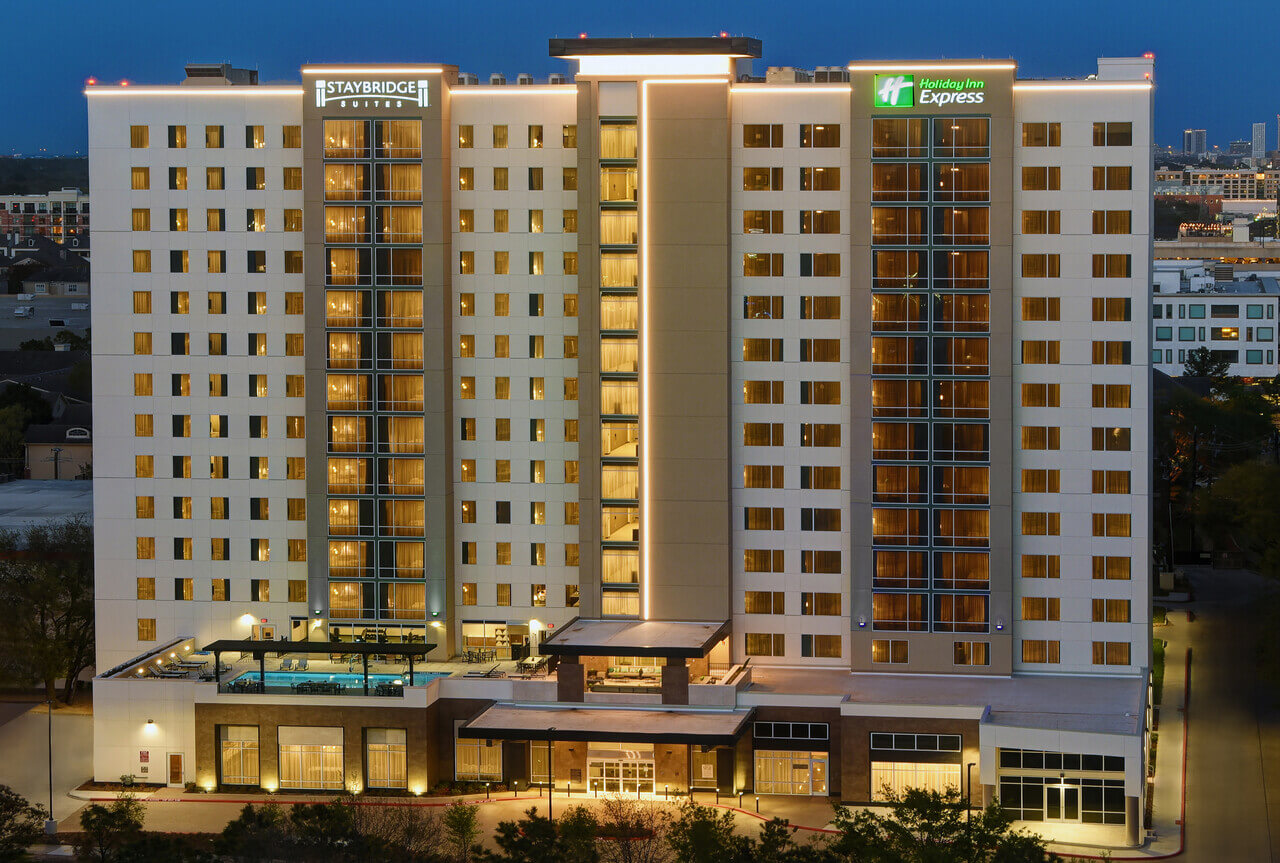
Providing instant gratification – but not taking the human out of hospitality
While Jason and his team are looking to use technology to speed up the process, they’re not looking to take humanity out of hospitality.
In his view, humanity isn’t taking the order, it’s delivering the food in a way that feels efficient for guests.
Challenged by legacy technology
Typically at most branded hotels, the brand dictates what technology a hotel property can and cannot use. A lot of their branded hotels used big legacy providers, he told me, and too often their systems would go down and he would have to track things manually.
“I actually had to have people sign little paper slips saying they agreed to charges. That was embarrassing because we’re supposed to have technology that handled everything but it was just sitting here and we couldn’t use it. I had to have guests sign pieces of paper like it’s 1952, and then go to the front desk and have them manually post something.”
Making this worse was trying to get help resolving these issues. “It was like pulling teeth whenever something went wrong. We’d sit there on hold for an hour, trying to get a problem resolved. You’ve got guests waiting for stuff, and we couldn’t help them as quickly as we wanted.”
The danger of poor support
Jason felt like he was playing a game of telephone where something would get lost in translation anytime he tried to resolve an issue with various teams from other technology providers. And of course, this held him and his team back from operating efficiently.
“Whenever you’re trying to operate and either your system isn’t accepting orders or you may not be able to run a credit card or do a room charge or something along those lines, it just interrupts the operation. It takes away valuable time from the team, whether it’s my time as the manager or someone else’s time that couldn’t bring in an order.”
Legacy technology with poor support also lost business and frustrated guests. “If we’re having to tell people, ‘Oh, right now we can’t do room charges and can use credit cards only.’ If they don’t have their credit cards with them, they’re going to say, “May as well just go out to eat.”
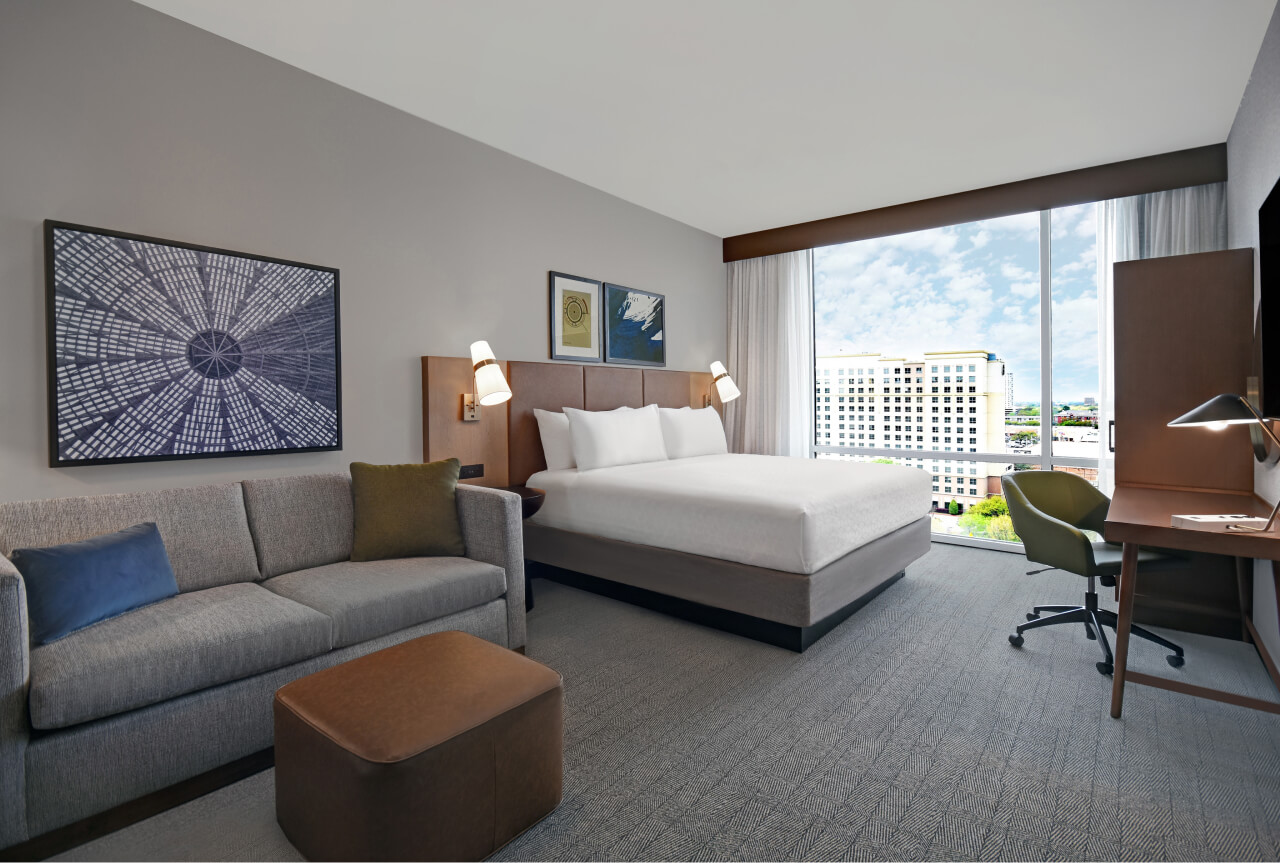
Challenged by on-premise technology
Another challenge Jason faced was having software installed on-premise. “You would have to go to a physical server anytime we needed changes or needed to reboot something.”
“Cloud” technology was cloud in name only. “When you have an application on your desktop and you had to be on the actual physical premises it defeats the purpose of cloud.”
Jason needed true cloud-based technology.
The importance of cloud computing
Someone overseeing operations at as many hotels as Jason does are rarely stationed at one property. “I’ll visit a property if there’s a need, but otherwise don’t need to be on property all the time.”
The ability to stay connected with technology from anywhere on any device is helpful to support his distributed teams. Jason gave the example of supporting a new manager when he was in a different part of the country by logging in together and making all the changes that needed to be made without having to be on the property.
“It’s 2022, and technology is such an important part of everything, especially leading food and beverage teams. As leaders, we can’t be on every property all the time, so we need to be able to connect and update things remotely.”
“In this day and age, cloud-based technology is a requirement.”
The product selection process
The Galleria Hotel opening gave Jason and his team the opportunity to find a new technology partner that wasn’t mandated by a brand. At the top of their selection criteria were cloud-based technology and expert support.
“Our experience with other providers drove us to choose Infrasys and I’m glad it did. The fact Shiji has a great relationship with IHG was helpful, but it was really their cloud-based technology and support that made us select them.”

The onboarding process
Once the decision to use Infrasys had been made, the onboarding and implementation process began.
“The setup and onboarding process was really an area that Shiji excelled. I was promoted into my role in February of 2021, and we opened this hotel at the beginning of April. So I was literally one week into my rule when I had my first call with the Shiji team.”
“They took us through how the process would look and how they would support us at each step. We had a dedicated person we could work with throughout the whole process. They actually came down to a property in Houston and held a weekly call with us to go through each stage of implementation. We talked through what we had done over the previous week and what we would do in the coming week.
“For me, the biggest thing is building the database. They sent us an Excel workbook where we entered all of our items and discounting processes. It was very well organized and we just had to drop our data in. I think it took less than two days in total. From there, our installer took over and let me know if he had any questions.”
With food and beverage sales, there’s complexity and discounting and tax issues and larger events like banquets – and the details matter.
“It helps that they had done these types of installations many times before and I could rely on Shiji’s expertise. If anything came up I felt confident I could work through to a solution with them.”
The implementation process wrapped up with calls to go through the demo installation and make sure that everything was ready to go live. “Everything looked great and they shipped hardware to us before coming down to our property to do the actual installation and get ready for opening.”
“The result was perfect. With our brands, there are a lot of interfaces and integrations, and we found the Shiji team had the experience in this that really accelerated the process.
“It was nice to have the person that actually built the entire database for our point of sale system be the one to also physically come install it. We were able to meet with him. He was able to train us on everything. It was a very comprehensive experience.
“The day before we opened, he was actually able to do a training class for all of the front-end users – and also all our servers, bartenders, and cooks. He was able to train them and get them up to speed on how to use the system and everything they would need to be successful when we opened.”
Opening new hotels is one of the most intense experiences in hospitality. “Every single thing in the hotel you can imagine is on pallets and pouring into the hotel. You’re unpacking as quickly as you can because you got another truck coming behind it. The pressure is insane.”
Jason found working with the Shiji team took a lot of the pressure off of this process. “Having their support when we were that close to opening and he was able to solely focus on that, installing that, getting everyone trained up on it, really took a lot of pressure off of the operations teams that were trying to open the hotel.
“That is another reason I would always pick them because we never got that type of support with any other provider. I’ve installed and worked with other systems and saw there is a big difference in experience during the onboarding and setup process.”
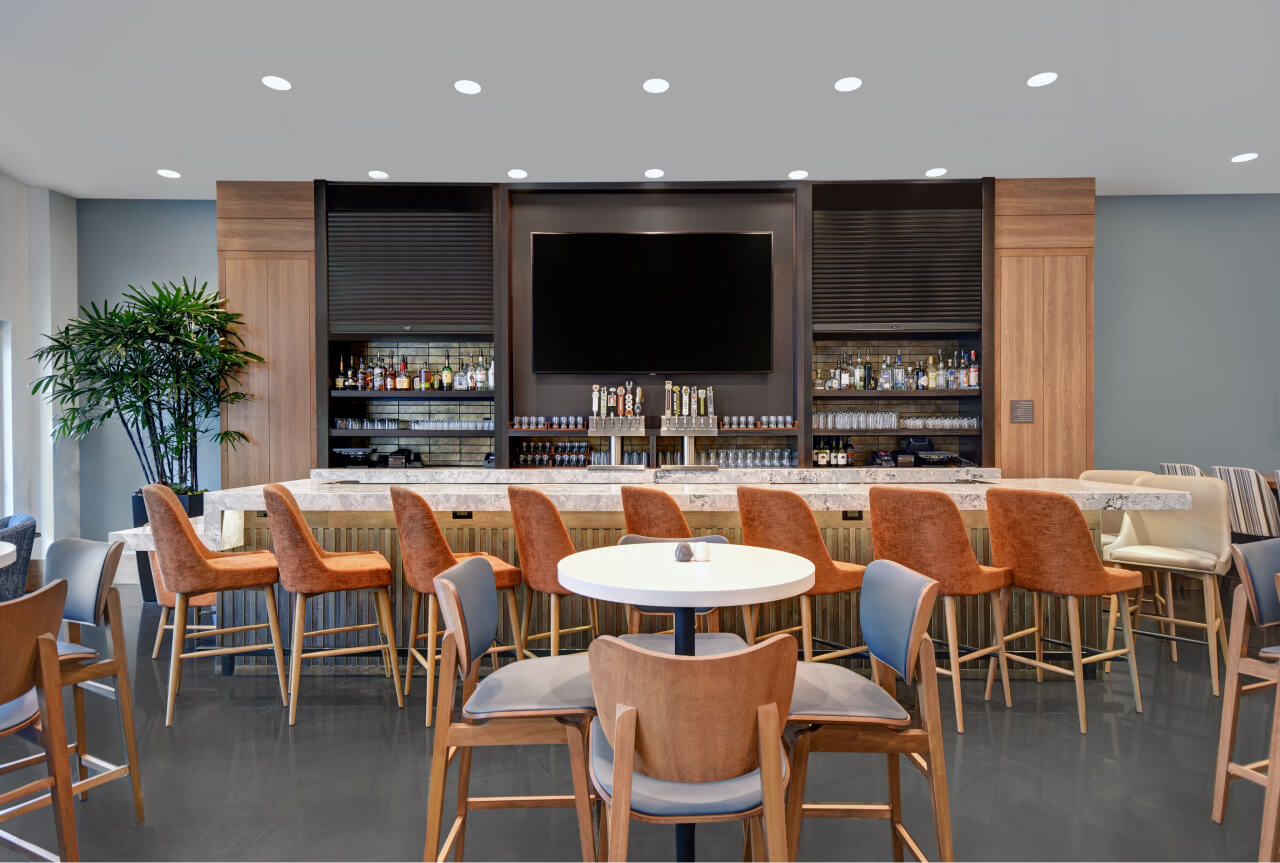
Support – on his terms
“I think that’s kind of what sets Infrasys and Shiji apart is that elevated support to where, if it’s a non-urgent issue, I can email their support team and within 30 minutes I’ll have an answer.”
“If I have an urgent issue, I can call and get someone in 5-10 minutes at most. We’re not sitting on hold forever. And that person that you talk to will actually fix the issue versus being kind of bounced around from here to there or whatever it may be.”
“Infrasys is the first POS provider that has given me multiple modes of support. I’ve never had one I can email before. If something is not urgent, I don’t even want to sit on the phone for 15 minutes. I can send an email in two seconds and get my answer and go on with my life.
“We’re trying to make ourselves easy to do business with. Shiji has done that for themselves as well.”
Life today with Infrasys
Today with Infrasys installed and in use, Jason and his team see that “cloud” is not a buzzword, but the foundation of what the F&B technology can do.
“There are others that claim they have cloud-based, but you still have to be on the hotel property to access it, which defeats the benefits of cloud-based technology. With Infrasys, everything is cloud-based and this revolutionizes the experience for us as operations leaders.”
Training is easier than ever before. “When we bring new folks on board, it is so easy to get them trained up on the point of sale system because it is just so user-friendly, which reduces our training time. We no longer have to spend a week teaching someone how to use a point of sale system, which we had to in the past.
This ease of use also means the pool of people they can hire expands. “It’s one of the things that sets us apart. “When I’m going through the hiring process, I might prefer someone who has no hotel or food and beverage experience, since I can always train for skills but I can’t train for attitude and mindset. Today, we can hire people who want to provide intentional hospitality each and every day. New associates can usually use our technology within one shift, and that’s a game-changer for us.”
Overall, Jason says he’s fallen in love with Infrasys.
The financial impact of Shiji technology
With Infrasys and Shiji technology, Jason sees both cost savings and opportunities for revenue growth.
“Infrasys definitely saves us money in training. But both Infrasys and Shiji’s other technologies, such as Shiji Digital Dine, are presenting opportunities to drive incremental revenue growth. By making ordering easier and easier for our guests, it will increase our checks and check sizes.”
Guest satisfaction is up as well. “Guests appreciate the experience they receive from us now that we’re running on Infrasys. They’re always surprised and delighted to see that we have it. If they’ve never stayed at one of our properties such as the Galleria, the first thing they say when they walk in is they think they’re at the wrong place because it’s so far above their expectations.


